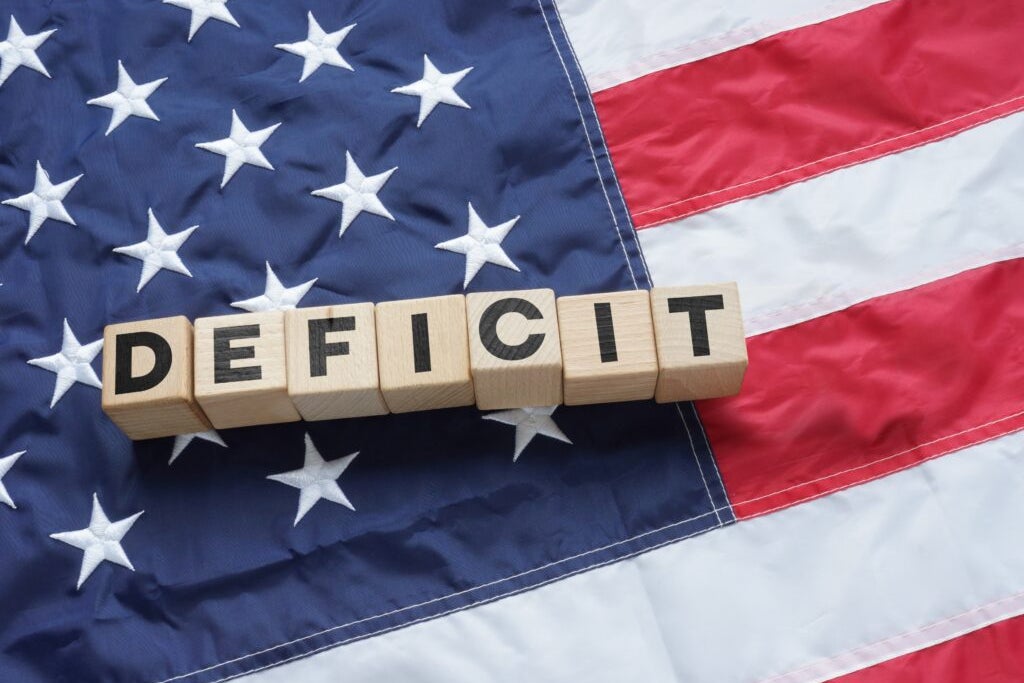Ray Dalio Predicts a ‘Debt‑Induced Economic Heart‑Attack’ Within 3 Years —Likens U.S. Deficit to Lifetime of ‘Overeating Fatty Foods And Smoking’
If anyone knows how to forecast a financial meltdown with the calm of a weatherman calling for rain, it’s Ray Dalio.
The billionaire investor and founder of Bridgewater Associates—one of the world’s largest hedge funds—isn’t known for social-media spats. But when the Financial Times ran what he called a “mischaracterization” of what he said, Dalio didn’t hold back. He posted the full Q&A on Sept. 2 in a post on X.
“I had them submit their questions in writing and I replied in writing… They then did not publish the exchange and instead published mischaracterizations of what I said,” Dalio wrote. “For accuracy, I am providing the actual questions and answers here for you to read.”
What followed was a detailed, unflinching breakdown of why he believes the U.S. economy is dangerously close to a debt-induced heart attack.
Don’t Miss:
A Metaphor You Can’t Unsee
Dalio’s main concern? Decades of what he calls “excesses,” like “overeating fatty foods and smoking over a lifetime,” have pushed the U.S. economy into critical condition. And now, thanks to more deficit spending and soaring interest obligations, it’s entering the final—and most painful—phase of what he calls the Big Debt Cycle.
“The great excesses that are now projected… will likely cause a debt-induced heart attack in the relatively near future—I’d say three years, give or take a year or two.”
Dalio explains that just like clogged arteries in the body, rising debt payments are squeezing out essential functions of the economy. The U.S. now pays about $1 trillion per year just in interest, with $9 trillion needed to roll over existing debt—and another $2 trillion in new borrowing likely coming due to the current deficit.
“The more that happens, the closer the country is to a debt-induced economic heart attack,” he wrote.
Trending: 7 Million Gamers Already Trust Gameflip With Their Digital Assets — Now You Can Own a Stake in the Platform
The Fed, the Fight for Control, and the Risk of a Weak Dollar
When asked about Donald Trump’s repeated attacks on the Federal Reserve, including threats to fire Chair Jerome Powell, Dalio didn’t assign blame—but he didn’t need to.
He outlined a historical pattern: when central banks lose independence, political leaders often push for looser monetary policy to juice the economy—even if it damages the long-term credibility of the currency.
“If the independence of the Fed is reduced to the point where investors think there is a high risk that interest rates [will be] unnaturally lowered… we will see an unhealthy decline in the value of money.”
He pointed out that foreign holders of U.S. debt are already shifting to gold—another red flag he sees as a symptom of the end of a monetary era.
Trump’s Economic Moves? Classic Big Cycle Stuff
Dalio didn’t shy away from calling out Trump’s economic interventions—like massive stakes in Intel, restrictions on Nvidia and Advanced Micro Devices and a “golden share” at U.S. Steel. He described them as early signs of what he calls “state capitalism with American characteristics.”
“The part of the Big Cycle that we are in is most analogous to the 1928 to 1938 period,” Dalio noted.
He stopped short of calling it authoritarianism or socialism. But he made clear that what we’re seeing—the government taking more control over the economy during a period of conflict and upheaval—isn’t unprecedented. In fact, it’s textbook.
See Also: Microsoft’s Climate Innovation Fund Just Backed This Farmland Manager — Accredited Investors Can Join the Same Fund
What About Crypto, Stablecoins, and the Future of the Dollar?
Dalio doesn’t think stablecoins are a systemic threat, but he does think the declining purchasing power of Treasuries is a real risk. And while he doesn’t believe crypto will replace the dollar, he does see it gaining ground as faith in fiat currencies slips.
“Crypto is now an alternative currency… [and] most fiat currencies, especially those with large debts, will go down in value relative to hard currencies,” he said.
So Who’s to Blame?
When asked whether America’s capitalist foundations are being undermined more by left-wing socialism or Trump’s economic strong-arming, Dalio refused to pick a team. Instead, he blamed the five classic forces that drive history’s biggest shakeups:
- Massive debt cycles
- Deep internal political conflict
- Geopolitical tensions
- Acts of nature and climate
- Rapid tech disruption, especially AI
Together, he said, these forces are converging—fast.
“The interaction of these five forces will lead to huge and unimaginable changes over the next 5 years.”
Final Word: Not Political—Predictive
Dalio framed his remarks as an attempt to be analytical and non-partisan—even if that risks being politicized. He’s not defending Trump. He’s not attacking him. He’s explaining what he sees through the lens of long-term economic history.
Read Next: The ECG Hasn’t Changed in 100 Years — This AI Upgrade Could Help Detect Heart Disease Years Earlier
Image: Shutterstock


